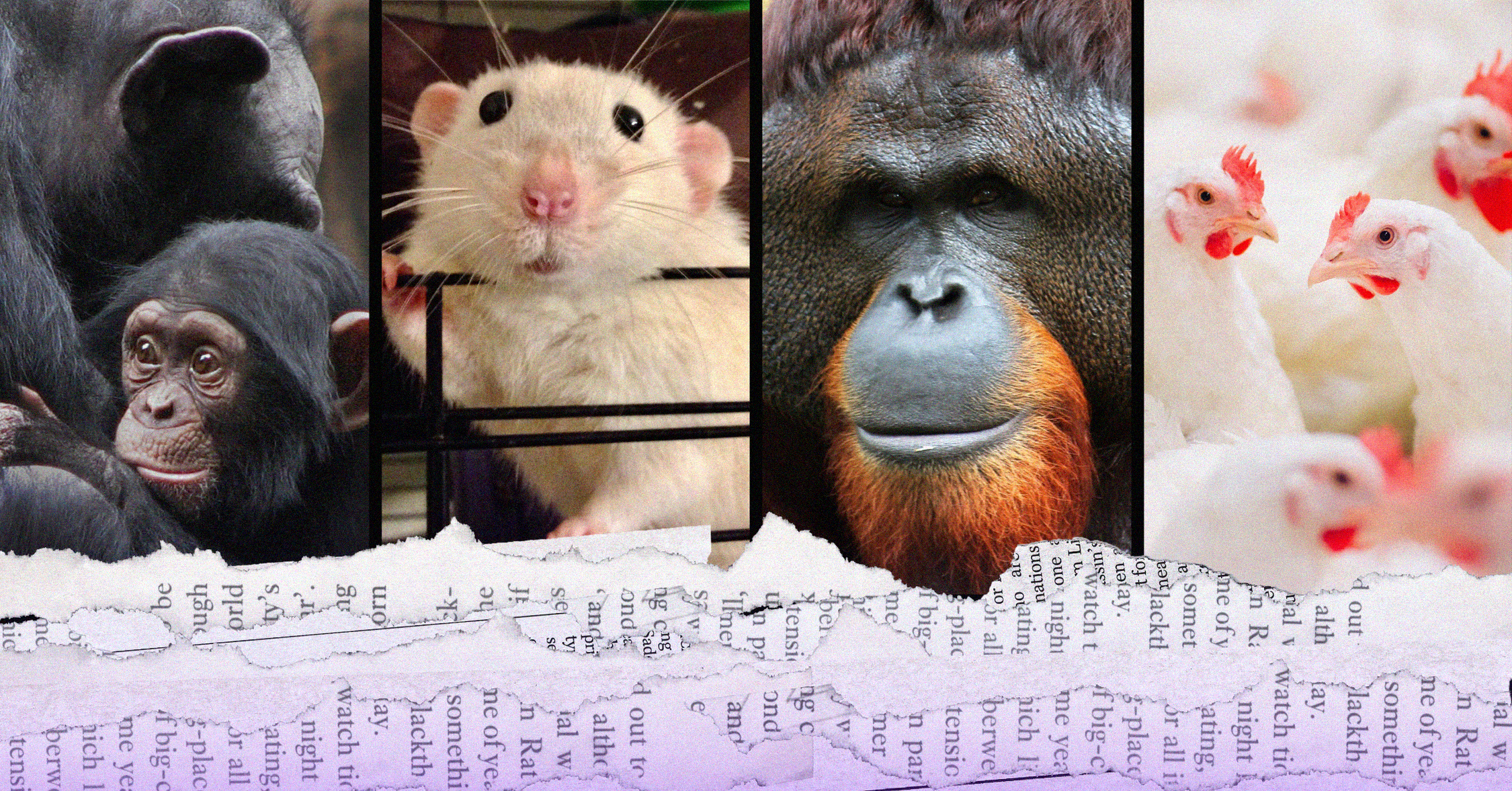
Here’s a roundup of this week’s biggest news stories related to animal research—all the recent media coverage you need to know right now to be the most effective activist for animals in labs.
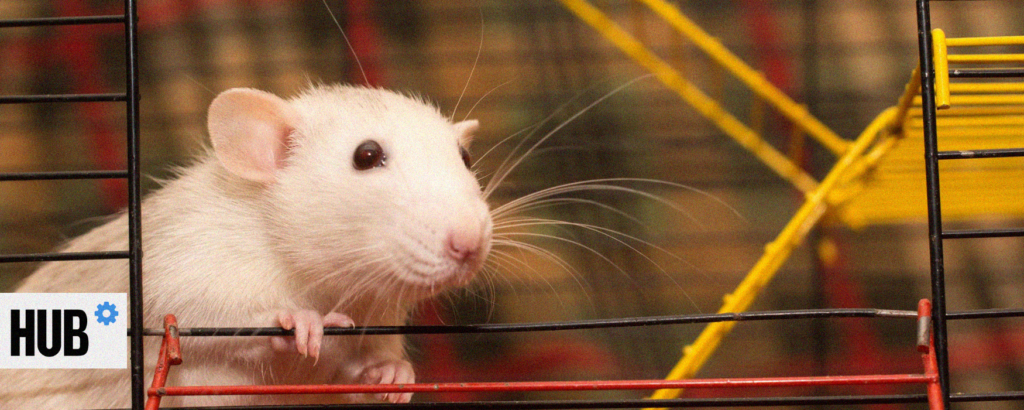
‘Surprisingly’ Strategic’ Mice Think Like Babies
Jill Rosen, 4/26/2024
“Kishore Kuchibhotla . . . wondered why rodents often performed poorly in tests when they knew how to perform well. With a simple experiment, and by acting as ‘a little bit of a mouse psychologist,’ he and his team figured it out. ‘It appears that a big part of this gap between knowledge and performance is that the animal is engaging in a form of exploration–what the animal is doing is very clever,’ he said. ‘It’s hard to say animals are making hypotheses, but our view is that animals, like humans, can make hypotheses and they can test them and may use higher cognitive processes to do it.’”
“Kuchibhotla’s lab previously found that animals know a lot more about tasks than they demonstrate in tests.”
“‘Mice are more strategic than some might believe.’” 📰 Full Story →
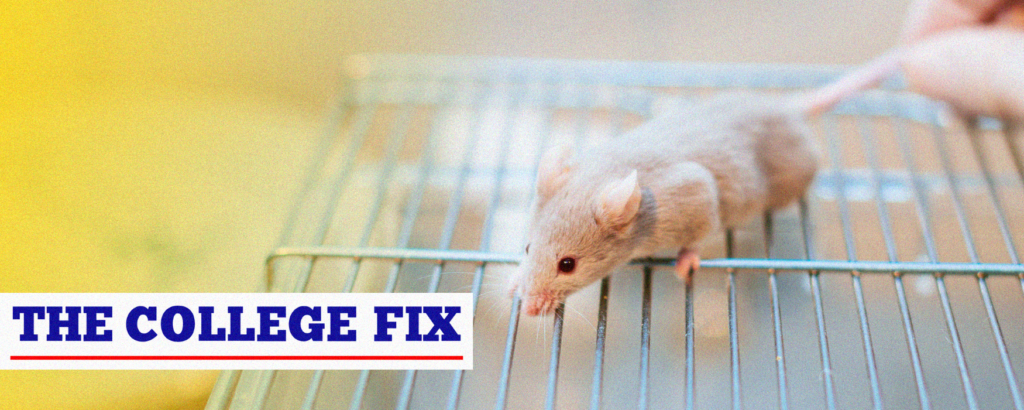
Animal Rights Group Wants Seton Hall Researchers Fired for Unethical Practices
Rachel Lalgie, 4/26/2024
“Seton Hall University should fire its researchers found complicit in animal abuse, according to an advocacy organization . . . The April complaint demands the termination of the ‘employment of these animal abusers who are masquerading as researchers.’”
“A research project ended early with euthanizing animals used in testing because of their mistreatment, a federal report, filed by Seton Hall, found.”
“One primary investigation remains suspended until 2025, after violating research protocol. However, others involved in the abuses have not been fired or punished . . . After the suspension, the investigator may continue his duties with live animals in research.” 📰 Full Story →
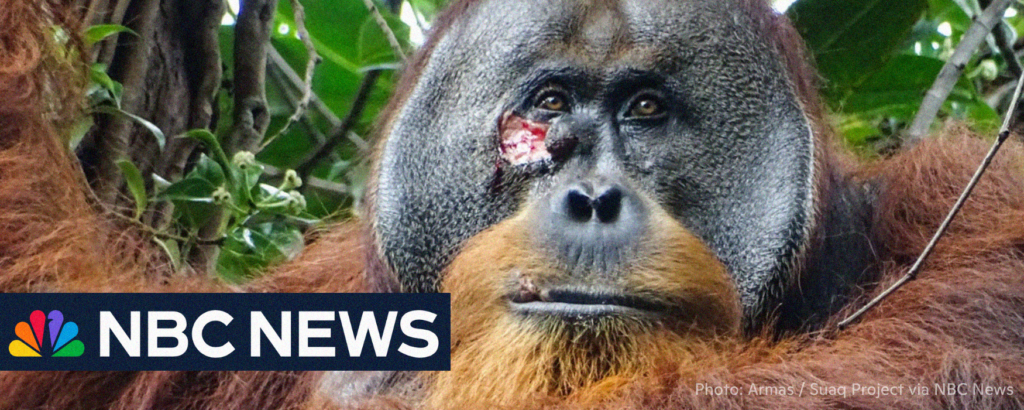
In a First, an Orangutan Was Seen Treating His Wound with a Medicinal Plant
Evan Bush, 5/2/2024
“According to [a] study, published Thursday, [a wild orangutan called] Rakus was observed repeatedly chewing on the leaves of a particular liana plant over several days . . . On at least one occasion, Rakus made a paste from the chewed leaves and applied it to [a wound on] his face. It’s the first time an animal has been seen applying medicine to a skin wound.”
“[Michael Huffman, an associate professor at the Wildlife Research Center at Kyoto University,] said he thinks all animal species self-medicate to some degree. Researchers have even documented the practice in insects.”
“‘It shows us that animals have control over their lives,’ he said. ‘That they can behave in ways that are flexible, that are adaptive to certain circumstances that come down to their very survival . . . A lot of medicine that humans have used over in our history as a species have come from our close connection with nature and looking to other animals for advice . . . I think that it’s the humans who have learned from the animals.’” 📰 Full Story →
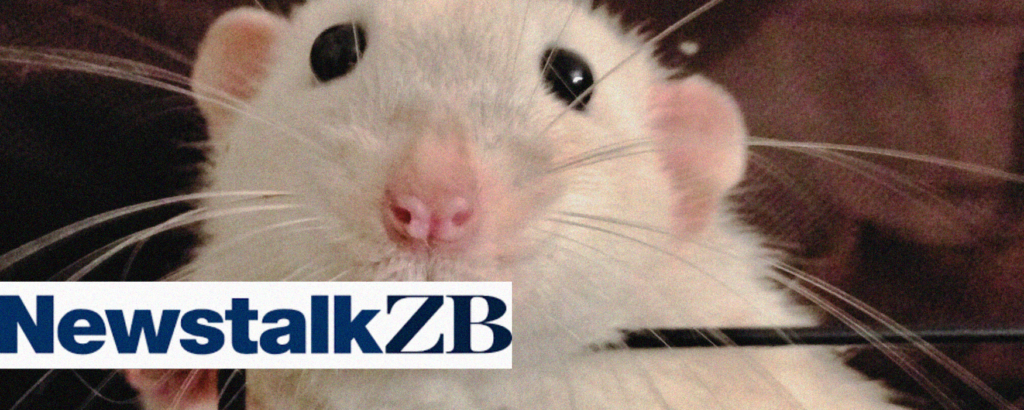
Lab Rats Look for Forever Homes in Unique Program
NewstalkZB, 4/26/2024
“The New Zealand Anti-Vivisection Society (NZAVS) [is] working with the scientific community to find former lab rats their forever homes, while pushing the Government to stop animal testing.”
“‘. . . we’re not calling them lab rats . . . they’re rats who have been used or bred for science….’”
“‘Rats are just the most adorable animals. Think of them like mini puppies . . . They are tiny, little, puppy-like animals who will take a treat from your hand; they can learn their name, and they can come running to it when you call it. They can learn lots of different tricks. They can learn to be potty-trained . . . They are very sweet, sweet animals, who get a very bad rap, but they make wonderful companions . . . You can have a lot of fun with them.’” 📰 Full Story →
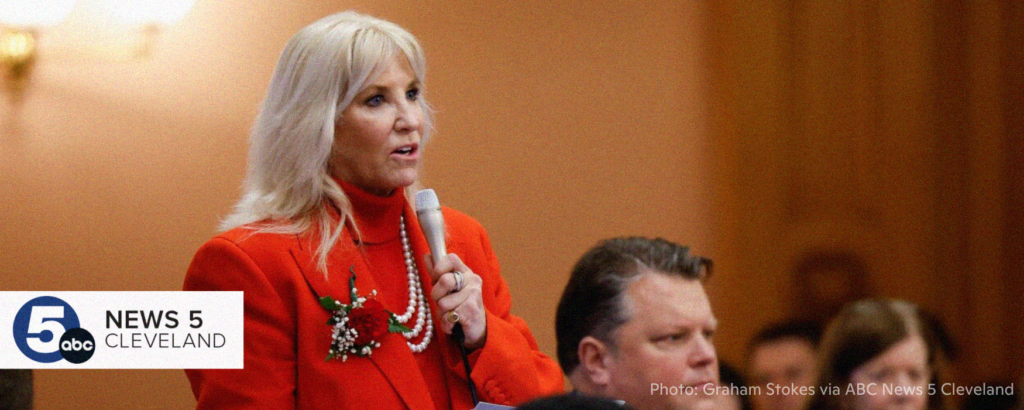
Procter and Gamble Heiress Proposes Bill to Stop the Type of Animal Testing P&G Has Done
Morgan Trau, 4/30/2024
“The heiress of Procter and Gamble, a multi-billion dollar consumer goods company, is proposing legislation in the Ohio House to stop cosmetics testing on animals.”
“[State Rep. Sara Carruthers (R-Hamilton)] and Rep. Bride Rose Sweeney (D-Cleveland) introduced House Bill 495, which would stop the majority of animal testing for cosmetics sold in Ohio. Not only would this save animals, but it would help the economy – since consumers want cruelty-free products, Carruthers said.”
“Carruthers is a descendant of Cincinnati-based company Procter and Gamble, and she wants companies like hers to stop animal experimentation . . . I reached out to P&G whose spokesperson said in a statement that their PETA cruelty-free brands are not tested on animals. However, that is a small percentage. They have 79 brands, and only 13 are on the PETA-certified list.” 📰 Full Story →
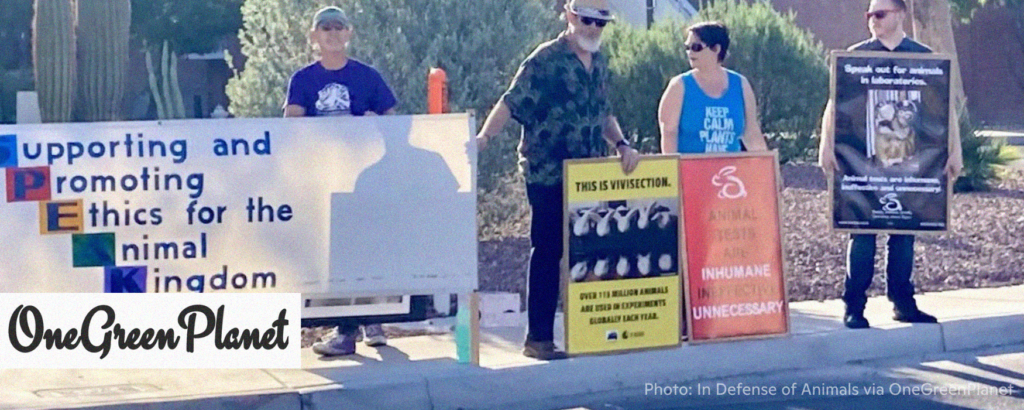
Activists Rally Against Animal Cruelty at University of Arizona’s College of Medicine
Trinity Sparke, 4/30/2024
“Activists . . . have joined forces once again to protest against the University of Arizona’s College of Medicine for its involvement in extreme animal cruelty.”
“The university has come under fire for its continued use of vivisection on animals, including brain-mapping experiments on primates and surgical training procedures on live pigs.” 📰 Full Story →
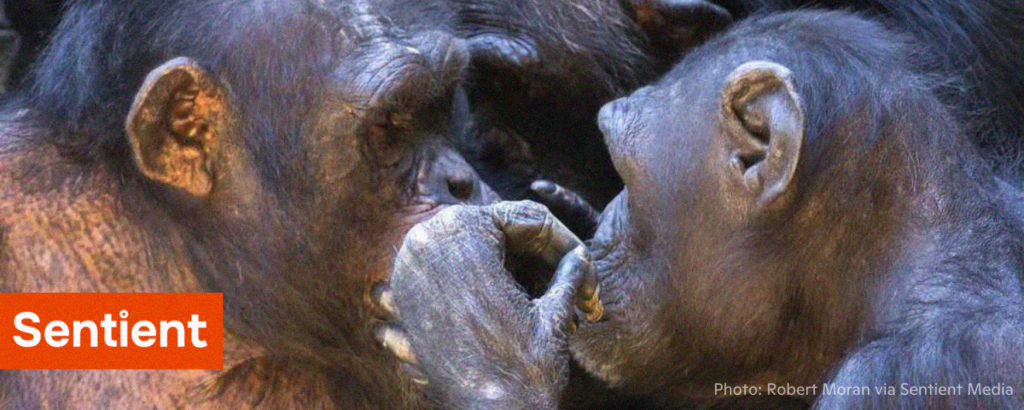
New Research on Animal Communication Shows Their Cultures Are Often Complex and Cumulative
Bjoern Olafsson, 5/1/2024
“One subset of culture – called cumulative culture by researchers – describes the phenomenon of a group learning a skill too complicated to master alone, often over multiple generations. Until recently, many scientists believed only humans were capable of cumulative culture, but two new studies are upending this belief.”
“In March, scientists at Queen Mary University published a study of their experiment with bumblebees, demonstrating these winged insects were capable of training each other to solve a puzzle too complicated for one bee to solve alone. That same month, another group of researchers published the results of a different puzzle experiment, this time with chimpanzees. These two studies challenge the idea that cumulative culture is inherently human.” 📰 Full Story →
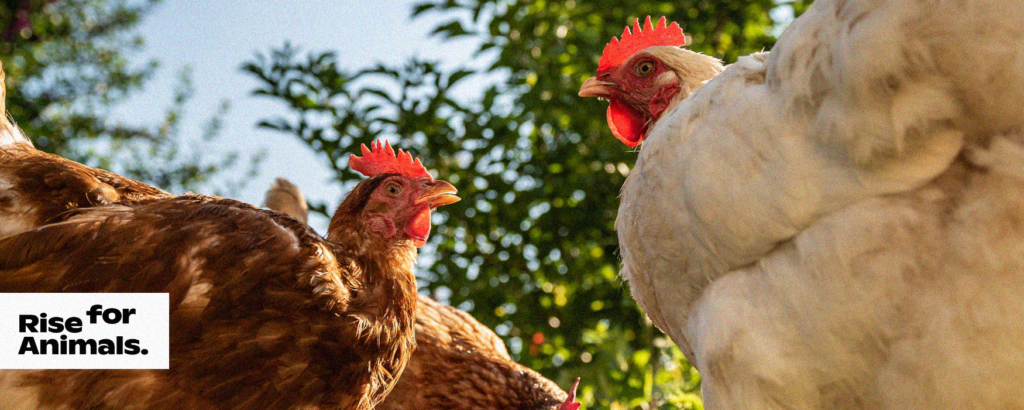
Chickens Are Cooped Up in Labs. Please Help Us Free Them.
Rise for Animals, 5/3/2024
Chickens — like all farmed animals — are among the most exploited (and least protected) beings on the planet, victimized by multiple facets of the animal industrial complex, including animal research.
Tomorrow, May 4th, is International Respect for Chickens Day. Learn about the myriad ways in which billions of these sentient, smart, and sensitive birds are exploited each year: 📰 Full Story →